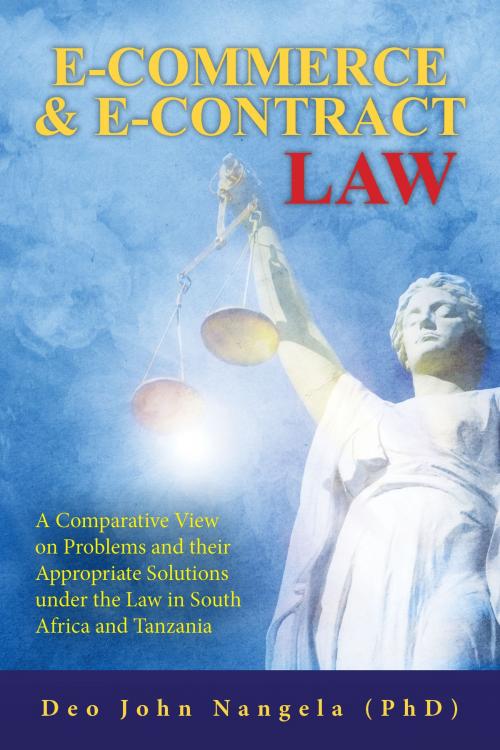| Author: | Deo John Nangela | ISBN: | 9781370167203 |
| Publisher: | Deo John Nangela | Publication: | July 9, 2018 |
| Imprint: | Smashwords Edition | Language: | English |
| Author: | Deo John Nangela |
| ISBN: | 9781370167203 |
| Publisher: | Deo John Nangela |
| Publication: | July 9, 2018 |
| Imprint: | Smashwords Edition |
| Language: | English |
We live in a fast-changing world where information and communication technologies (ICTs) present unprecedented development opportunities to nations globally. To developing countries, in particular, ICTs provide an avenue to fulfil their desire to be integrated into the global economy. With development of technology-driven modes of doing business, such as e-commerce, e-contracting, and other means of transacting business electronically, even the least developed countries can have a share of the global market. To do so they must however put in place the necessary infrastructure and favourable legal and regulatory environment that not only nurtures and promotes the development of these techniques, but also makes it possible to harness other benefits of ICTs.
This book provides a developing country’s perspective regarding development of e-commerce and e-contracting, the two phenomena which are playing a crucial role in the growth of the so-called Internet-based or ‘digital economy’. Their impact has permeated countless sectoral aspects of the global economy, impacting sectors as varied as tourism, banking, transportation, retail, energy, education, publishing, media or health, to mention but a few. From a comparative approach, the book discusses efforts by two Sub-Saharan African countries, namely, South Africa and Tanzania, to harness the benefits of e-commerce through legal reforms aimed at promoting innovation and inclusive growth.
About the author
Dr Deo John Nangela is currently the Director of Restrictive Trade Practices at the Fair Competition Commission in Tanzania. He was a former lecturer at the School of Law, University of Dar-es-Salaam where he taught law for a decade before joining the Fair Competition Commission in 2012. He is a graduate of the University of Cape Town, South Africa where he earned his PhD degree in 2011, the University of London (SOAS) where he earned his LLM in 2001 and University of Dar-Es-Salaam, where he was awarded his first degree in law (LLB) in 1997.
We live in a fast-changing world where information and communication technologies (ICTs) present unprecedented development opportunities to nations globally. To developing countries, in particular, ICTs provide an avenue to fulfil their desire to be integrated into the global economy. With development of technology-driven modes of doing business, such as e-commerce, e-contracting, and other means of transacting business electronically, even the least developed countries can have a share of the global market. To do so they must however put in place the necessary infrastructure and favourable legal and regulatory environment that not only nurtures and promotes the development of these techniques, but also makes it possible to harness other benefits of ICTs.
This book provides a developing country’s perspective regarding development of e-commerce and e-contracting, the two phenomena which are playing a crucial role in the growth of the so-called Internet-based or ‘digital economy’. Their impact has permeated countless sectoral aspects of the global economy, impacting sectors as varied as tourism, banking, transportation, retail, energy, education, publishing, media or health, to mention but a few. From a comparative approach, the book discusses efforts by two Sub-Saharan African countries, namely, South Africa and Tanzania, to harness the benefits of e-commerce through legal reforms aimed at promoting innovation and inclusive growth.
About the author
Dr Deo John Nangela is currently the Director of Restrictive Trade Practices at the Fair Competition Commission in Tanzania. He was a former lecturer at the School of Law, University of Dar-es-Salaam where he taught law for a decade before joining the Fair Competition Commission in 2012. He is a graduate of the University of Cape Town, South Africa where he earned his PhD degree in 2011, the University of London (SOAS) where he earned his LLM in 2001 and University of Dar-Es-Salaam, where he was awarded his first degree in law (LLB) in 1997.















